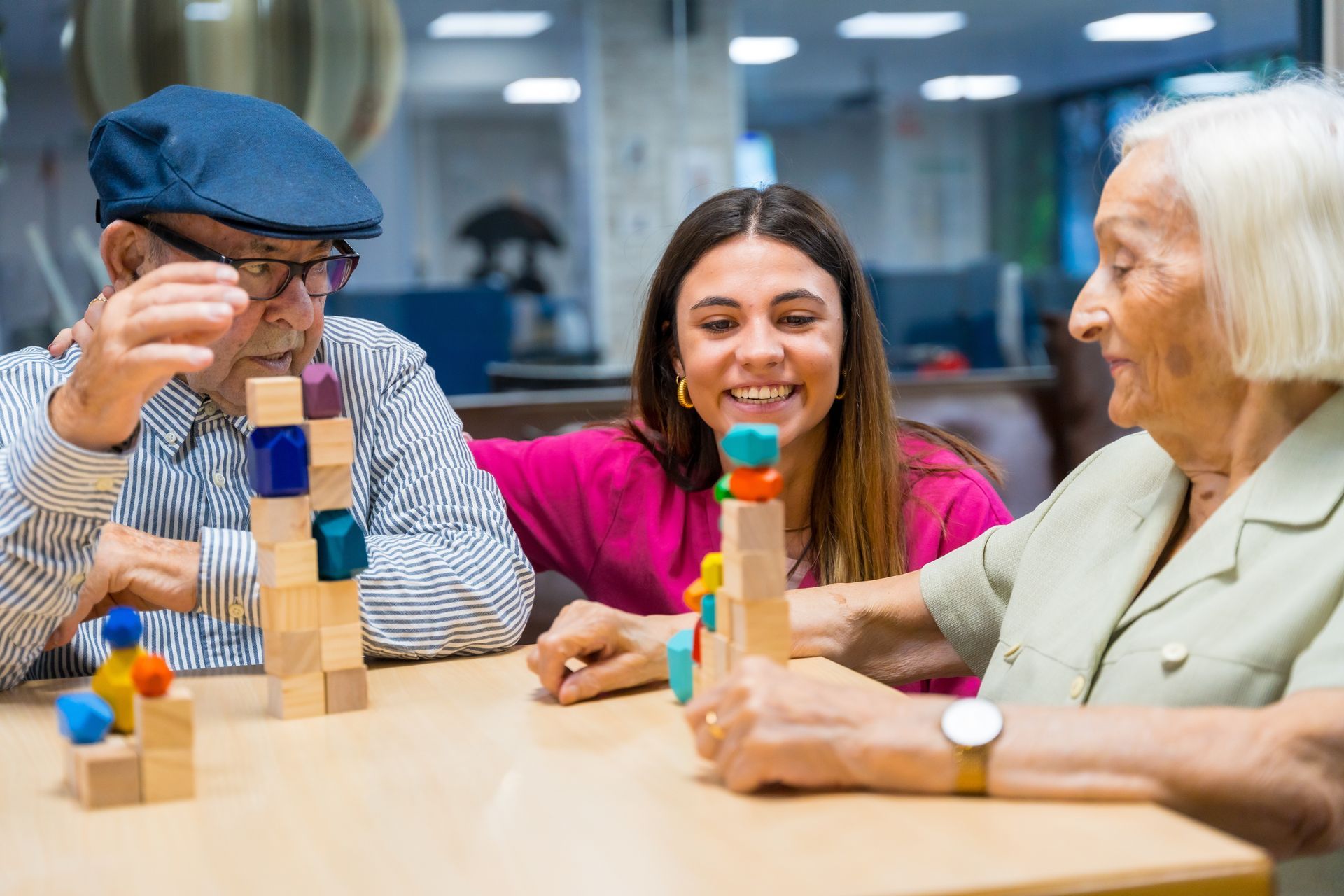BLOG
Aging With Grace: How a Strong Social Life Protects Health and Wellness of Seniors
Humans are hard-wired to be social, to enjoy the company of others, and to connect in meaningful ways. That doesn’t stop as we age, nor does it cease to be true for a person with Alzheimer’s, another form of dementia, or traumatic brain injury. In fact, being social is not only essential for the health and wellness of seniors, it’s one of the most important elements of healthy aging.
Health & Wellness of Seniors: The Positive Effects of Socializing
It’s good to have friends, to share the art of conversation, to have contact with other people throughout the day. For those undergoing cognitive changes, these type of interactions can become more difficult over time. Yet, they remain vital for mental and physical wellbeing. Here are just a few reasons why, provided by Dementia Care Central:
- Spending time with others is very important for a person with Alzheimer’s or other form of dementia. Socializing is a way to exercise the brain, and can slow symptoms including fading memory.
- Staying connected with family and friends can boost the mood of a person dealing with memory issues, which can result in better eating habits, improved sleep, and higher physical activity.
- Socializing helps a person with dementia keep the skill of being able to transition from inside their mind (daydreaming, for example) to outside their mind (speaking with a family member).
- Connecting with others also helps keep a person in the present, providing a sense of reality.
- Having human contact just feels good! In fact, one study reports that all it takes to help reduce agitation and improve quality of life for a person with dementia is just one hour of social contact a week.
Conversely, not having regular contact with others can adversely affect the health and wellness of seniors. The National Institute on Aging says research has linked social isolation and loneliness to higher risks of high blood pressure, heart disease, obesity, depression, cognitive decline, Alzheimer’s disease, and more.
How seniors with cognitive issues can stay connected—right where they live.
The environment plays a huge role when it comes to socializing, especially for older adults and even more specifically, for those with memory issues. It can be difficult for someone who either lives on their own or with a family member and is very limited in the number of people with which they can interact. That’s why as cognition declines, families often seek a memory care setting that will offer the support and engagement their loved one needs.
And when seeking that lifestyle option, many families find that residential senior living, also sometimes called a shared home, can be the optimal choice. Here are just a few benefits this model offers for the health and wellness of seniors:
- Constant contact with others. In a shared home setting, the number of residents is usually kept under 10, which creates more of a homelike, family environment. Residents are able to easily engage with one another and caregivers through group activities, events, outings, and other familiar experiences.
- Familiar faces each day. In a larger senior living environment, the care staff can have several residents to monitor and turnover rates can be high. In residential senior living, residents receive more personalized attention from a dedicated team member who becomes a friend, making it easy for family to stay informed about their loved one’s progress.
- More relaxed and pleasant dining experiences. It’s much easier for a resident to feel a part of mealtimes in a smaller environment, where they can gather around a home-style kitchen and perform familiar tasks like helping set a table or assisting with meal preparation. These experiences provide familiar and welcome moments that give residents a sense of purpose
- Feeling a part of a community. Residential senior living offers the benefit of a real neighborhood setting, where memory care residents can enjoy a sense of community and belonging. Sitting on the front porch, walking a dog around the block, or enjoying holiday décor on surrounding homes adds to a feeling of security and self-worth.
Socialization: So Important for the Health and Wellness of Seniors.
At Assured Senior Living, we have a staff-to-resident ratio of 1 to 4, making it easy for your loved one to forge deep, lasting bonds with our dedicated, caring team members, who spend time creating meaningful connections. Our residents enjoy fun activities, familiar home routines, and an excellent quality of life. We would love to tell you more.
How is Assured Senior Living Different? Let us Show You.
Download our free guide,
A Family Guide to Funding Senior Care & Housing. Or
contact us today.















